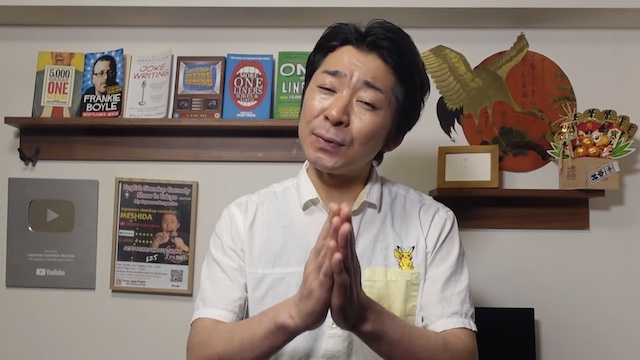TOKYO, May 01 (Japanese Comedian Meshida) - Now, many foreign tourists come to Japan and enjoy our culture, and our government is trying to make Japan a great tourism country. But, to be honest, we are flooded with many problems. You may say foreign tourists will destroy Japan. Today, I will talk about the reason why myths about Japan exist. What is an inbound nation?
1. What is an Inbound Nation?
The Japanese government aims to become a tourism powerhouse and welcome as many foreign visitors as possible. However, tourism is said to be a major tool used by developing countries to stimulate economic growth. The Japanese government has boldly stated that it will increase the number of people involved in the tourism industry here, making it one of the top 10 countries that rely heavily on employment in the tourism industry. This will be attractive for investment, and much of the inbound profit will go to the outside world instead of the local market. Japan will become a colony of foreign companies, especially from the US, and in the future, maybe China. Japan will be the most popular destination in Asia, but inbound tourism will not support the Japanese economy.
2. Inbound Will Not Support the Japanese Economy
The Japanese government claims to make inbound tourism a cornerstone of the economy. In reality, prior to COVID-19, Japan's tourism industry only accounted for 2% of GDP. Additionally, the ratio of inbound to domestic consumption is around 1.5%. This is about the same as the percentage of Christianity in Japan. In comparison, the idea that inbound tourism business will become the cornerstone of the Japanese economy is as unrealistic as the idea of Christianity becoming a pillar of Japanese religion. This means that the only thing they have in common is their rarity.
3. The Truth About Record Inbound Spending
Record inbound spending in 2023 was projected to increase by 99.9% compared to 2019, reaching a record high of 5.3 trillion yen. However, since Japanese domestic use is 21.8 trillion yen, inbound consumption takes up 23% of total tourism expenditures in Japan. Japanese domestic travelers are spending overwhelmingly more on tourism than inbound spending. Moreover, domestic consumption is 0.2% lower than in 2019. Also, the weekend has brought many foreigners to Japan, and Japanese citizens are now facing financial problems to some extent that they can no longer afford domestic travel. Could Japan be turning into just a tourism Disneyland while all Japanese will be slaves working in the Dreamland?
4. Increase in Non-regular Employment
The tourism industry certainly generates many job opportunities; however, most of them are non-regular workers with low wages. According to the Ministry of Internal Affairs and Communications, the percentage of non-regular workers in the lodging industry is 54%. Furthermore, the average wage in the lodging and food service industry is 257,400 yen, the lowest among all industries. The more foreign tourists come to Japan, the more non-regular, low-wage workers there will be. Worst of all, there is no tipping culture in Japan, and yet there's a well-known saying in Japan that a customer is God. For Japanese people working in the tourism industry, foreign visitors are like Gods, but they do not give tips. It is very unfortunate for Japanese people, but the only job in the tourism industry where they can earn money as a nonregular employee will be in the sex industry if the Japanese government continues with this foolish policy. Japan will soon become a cheap red-light district for foreigners, like a national fall from grace.
Many foreign tourists visit Kyoto, especially its streets and famous pagodas. It is always flooded by tourists, causing traffic congestion, noise problems, and the disruption of valuable cultural properties. Some people are moving out of Kyoto and Osaka to the countryside because they can no longer live in peace. Kyoto will be transformed from a traditional Japanese town to a town for foreigners, or into a Chinese town like Naguchi in Sasebo. Also, inbound demand has increased demand for land, and gentrification is becoming an issue. Already, hotels and other places are increasing in price, making it impossible for Japanese people to stay there. In the near future, all attractive places in Japan will be owned by foreigners, and the price will rise, and the poor Japanese will not be able to access them like Niseko in Hokkaido. The problem of garbage in tourist areas also worries local people. Japan has very few trash cans outside, so there is a lot of litter. Perhaps the reason why the Japanese government is not seriously addressing this problem now is that they know that in the near future, when Japan becomes poorer and the number of homeless people increases, the homeless will pick up trash to earn money. This is because the homeless volunteer workers will pick up the trash thrown away by the foreigners and clean it up. They will clean up the garbage. Listen, foreigners, if you come to Japan, please spend a lot of money and save local poor Japanese.
Please book my stand-up comedy show and not only pay a ticket fee but give me tips too. Thank you very much for watching this video. If you like this video, please like and subscribe to my YouTube channel, and I'm organizing my solo stand-up comedy show in Tokyo. If you are interested in that, please check out the link below. So, see you soon, goodbye!
Source: Japanese Comedian Meshida
















